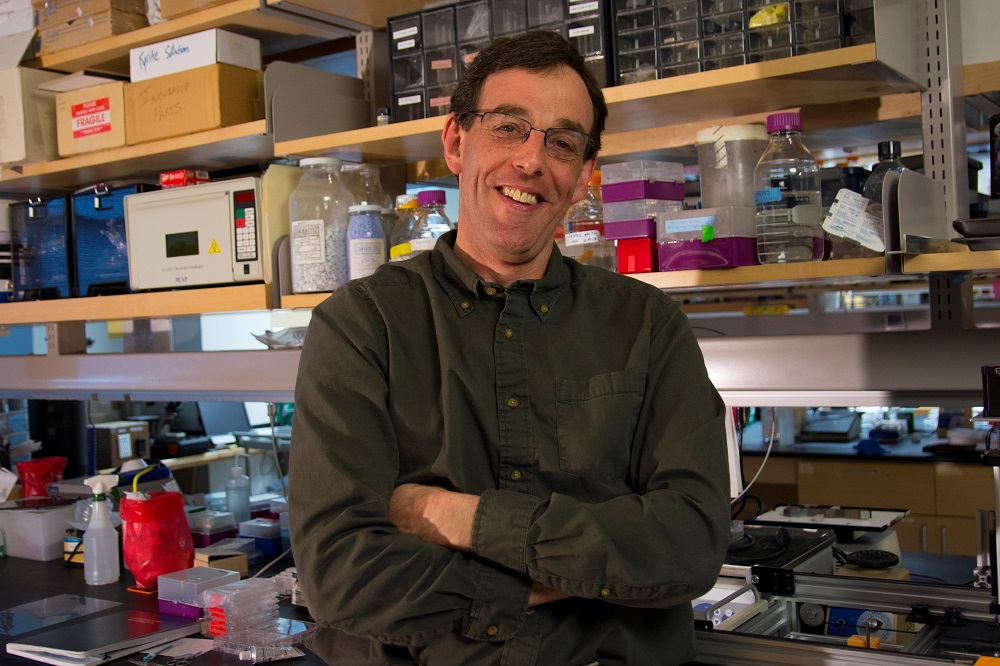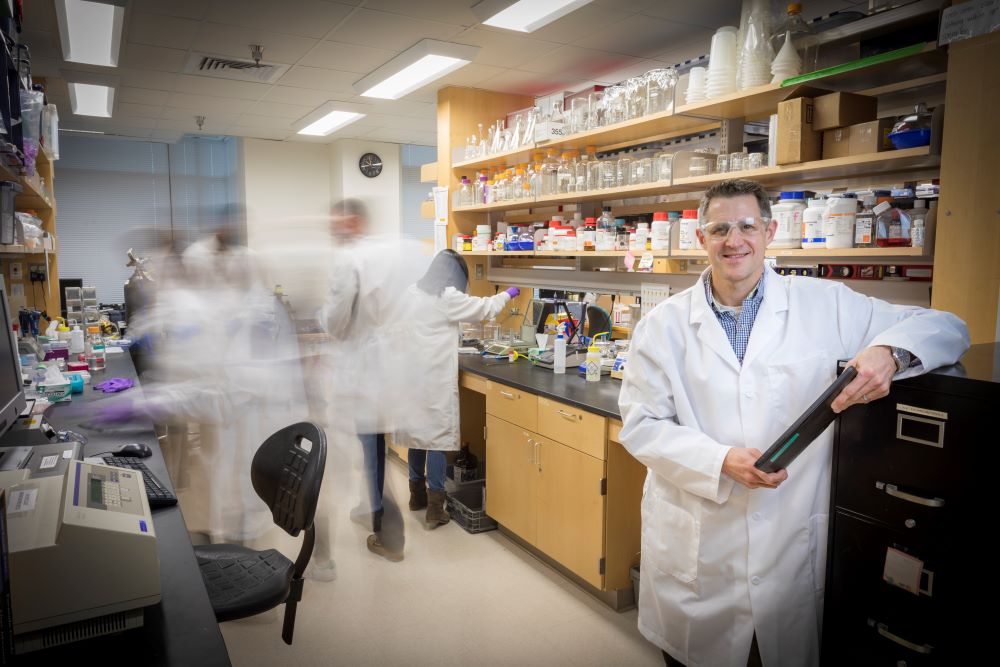WORCESTER, Mass. – May 28, 2009 – Congressman James McGovern, D-Massachusetts, today announced National Institutes of Health (NIH) awards for two researchers at Worcester Polytechnic Institute’s Life Sciences and Bioengineering Center at Gateway Park.
Glenn Gaudette, PhD, assistant professor of biomedical engineering at WPI, will receive $403,000 over two years to advance his work using bone marrow derived stem cells to restore function to damaged hearts. Terri Camesano, PhD, associate professor of chemical engineering at WPI, will receive $218,000 over two years to continue her studies of how cranberry juice prevents urinary tract infections. The grants are the first NIH awards for both Gaudette and Camesano, marking an important milestone for the investigators.
"I am pleased to see the NIH continues to recognize the vital research being done at WPI,” said Congressman McGovern. "The NIH is the gold-standard for biomedical research in the United States, and these awards further extend Worcester’s position as a leading center for the life sciences.”
Commenting on the new awards and the growing concentration of NIH funded research at the university, W. Grant McGimpsey, WPI’s associate provost for research and graduate studies ad interim, said "receiving NIH funding, after a rigorous review from their peers, is a major achievement for our young investigators. It validates the scholarship and creativity of their work. More important, though, is the progress these and other exciting research programs at WPI are making to help translate basic science discoveries into potential therapies and technologies that will help people.”
In previous studies, Camesano has shown that cranberry juice hinders the ability of the bacteria E.coli to adhere to the epithelial cells that line the interior of the urinary tract. Bacterial adhesion is the first step toward infection. In the new study, Camesano’s team will analyze how cranberry juice affects the molecular mechanisms involved in that initial latching-on process, using atomic force microscopy to measure the forces involved. The aim is to establish the optimal cranberry juice dose and exposure time to prevent bacterial adhesion. As part of the new study, Camesano will collaborate with Joseph Grocela, MD, a urologist and clinical researcher at the Massachusetts General Hospital, who will provide samples of epithelial cells taken from women who suffer from chronic urinary tract infections (UTIs). Camesano’s lab will observe how the cells react when they are challenged by E.coli and treated with cranberry juice. The goal is to develop a new therapy for UTIs that does not rely on antibiotics.
Gaudette’s lab explores the potential for human mesenchymal stem cells (hMSCs), which come from the bone marrow, to regenerate cardiac tissue, thereby helping a damaged heart beat more effectively. Heart attacks cause significant scaring of cardiac tissue, which in turn prevents the scarred area of the heart from contracting to pump blood. Recent studies by Gaudette and others have shown that when hMSCs are injected into a damaged heart, they help improve cardiac function. Working with WPI colleagues George Pins, PhD, associate professor of biomedical engineering, and Marsha Rolle, PhD, assistant professor of biomedical engineering, Gaudette developed a system for seeding biopolymer microthreads with hMSCs, then stitching those threads directly into a damaged heart. The technique significantly improves the ability to place the hMSCs at precise points in the heart to improve function in the damaged area. The new study aims to develop processes for maximizing the number of hMSCs that can be loaded onto the threads, and then to study the effect of the cells on cardiac function in a rat model.



